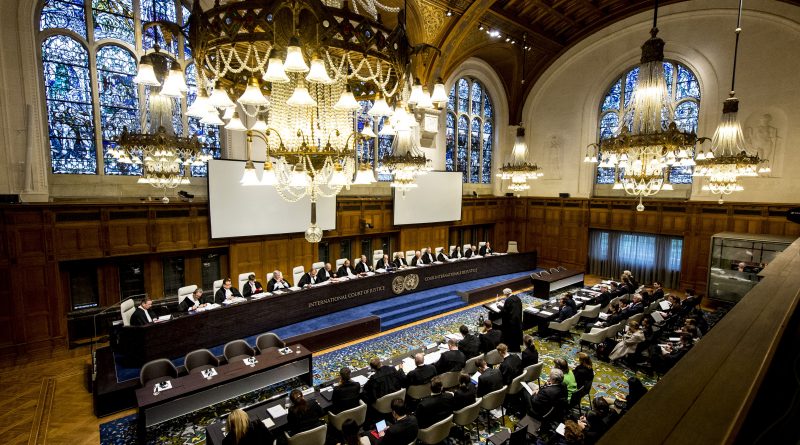Canada and The Netherlands Take Syria to Top UN Court
Yasmin Obeidallah
Staff Writer
Canada and The Netherlands are taking Syria to the International Court of Justice (ICJ) over claims that it has breached the United Nations Convention against Torture. Their application claims that “Syria has committed countless violations of International law, beginning at least in 2011.” The ICJ has stated that Canada and the Netherlands have asked for emergency measures to be taken to protect potential victims of state-sponsored torture in Syria, Reuters reports. On October 10, Syria boycotted a preliminary hearing at the UN that imposed provisional measures on the Syrian government to stop torture while the case proceeds through the ICJ, says The Associated Press.
In a joint statement by Canada and the Netherlands released on October 10 by the Government of Canada, the two nations allege that since 2011, “tens of thousands of Syrians have been tortured, murdered, sexually assaulted, forcibly disappeared and subjected to chemical weapons attacks” by the Syrian regime. They called on the international community to support the efforts to hold Syria accountable and affirmed that peace and reconciliation in Syria will not exist without justice for victims and survivors alike.
When the Arab Spring burst around the Middle East, inspiring the masses to call for democratic governments and human rights, southern Syria erupted in pro-democracy protests against the government and President Bashar al-Assad. The government used deadly force to dispel the dissent, fueling unrest and violence around the nation, says BBC News. The government’s crackdown on protesters and political dissents morphed into a civil war, killing half a million people, wounding hundreds of thousands, and destroying parts of the country since March 2011. Half of Syria’s population of 23 million has been displaced, according to ABC News. The devastation caused by the war has been exasperated by the destruction caused by the earthquakes that hit northwest Syria in February, says Reuters.
In a statement published by the Government of the Netherlands in June, Canada and the Netherland’s case against Syria cites the abhorrent treatment of those held in detention centers. This includes the use of torture, enforced disappearances, and inhumane conditions that often resulted in death. The New York Times reports human rights groups have documented widespread killings of civilians, including the death of an estimated 14,000 believed to have died from torture or to have been killed in the prison system run by Syria’s military or security forces, then dumped into secret mass graves. 130,000 people are believed to still be missing. Experts have also reported more than 300 chemical weapons attacks in Syria in the last decade. President al-Assad has denied human rights abuses and the use of chemical weapons, claiming that “terrorists” – a term used for any of his opponents or critics-are responsible for the violence.
Despite Syria’s long list of suspected international law violations, Arab countries have not been deterred from normalizing relations with the republic. The United Arab Emirates and Jordan have normal relations with Syria, and the Arab League readmitted Syria after suspending it in 2011 over its human rights abuses, according to Human Rights Watch.
The ICJ may pressure other nations to reevaluate their relations with Syria without addressing the torture and abuse charges they face. Human Rights Watch reports that in July a UN Commission of Inquiry found that Syrian authorities continue to “detain and forcibly disappear” thousands of people using a network of detention facilities throughout the country. These people face the risk of death from torture and inhumane conditions at detention centers.
Canada and the Netherlands’ actions against the brutal Syrian regime may hold the government accountable for its horrific acts against its own people and promise justice to the victims and survivors in the face of violence and abuses.
Image courtesy of the United Nations


